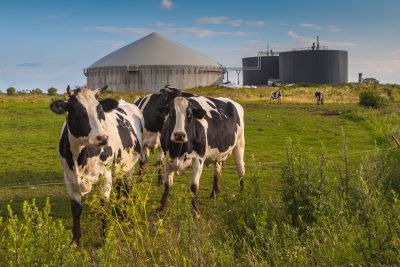Grass-fed beef is marketed as the perfect trifecta: healthier, sustainable, and humane—but is this actually true or is this just more marketing?
Is Beef from Grass-Fed Cows Healthy?
Red meat, which includes beef, pork, and lamb, has been shown by scientists to increase your risk of type 2 diabetes, heart disease, and some cancers (colon and breast). The World Health Organization considers red meat a ‘probable carcinogen’. While some argue that grass-fed beef is healthier than grain-fed, as it has more of the healthy fatty acids, no study has found that this minor increase in omega 3 is significant enough to impact our overall health. On the other hand, there are many studies which show the health benefits of ditching meat and eating a fully plant-based diet.
Is Grass-Fed Beef Better for the Planet?
Because grazing cows on a properly managed pasture can increase the soil’s ability to absorb and store carbon, it has been argued that grass-fed cows, unlike their grain-fed siblings, can be carbon neutral. This is just not true. Researchers from the University of Oxford investigated this theory in their 2017 report, which concluded that grass-fed beef is not better for the planet; it is actually worse. This is because:
- Grass-fed cows’ diets contain more cellulose fiber compared to grain-fed animals, requiring more fermentation to break the grass down, causing two to four times more methane to be released from the cows directly. Methane is much worse for global warming than carbon dioxide (CO2), as it has about 25 times more warming potential than CO2.
- Grass-fed cows take longer to grow and reach slaughter weight so they live longer and therefore have higher overall lifetime emissions.
- Grass-fed cows require around 41 percent more land than grain-fed cows. Cows alone are responsible for 70 percent of deforestation in Brazil, so choosing to eat grass-fed beef will further exacerbate this environmental destruction.
When it comes to the environment, grass-fed beef is not the lesser of two evils. If you truly want to eat a sustainable diet, a plant-based diet is best as it produces fewer greenhouse gasses and requires far less land and water. In fact, Joseph Poore from Oxford University says being vegan is the single biggest thing we can do to help the planet.
Is Grass-Fed Beef More Ethical?
Cows grazing on a green field under the sun looks a lot more pleasant than the images we have all seen of distressed cows in overcrowded factory feedlots. However, the term “grass-fed” does not necessarily mean that the cows are treated any differently. In many countries, there are few regulations on what actually constitutes “grass-fed”. In the USA, grass-fed cows do not need to graze; they may remain locked in a feedlot and fed on grass pellets. Recently, in Canada, regulations on what constitutes “grass-fed” were put in place however these still do not address many of the other welfare issues, such as the long and stressful transport to slaughterhouses and in the end the death of a living being.
Is Grass-Fed Beef More Sustainable?
Another common argument is that by allowing cows to feed on grass, they can take otherwise unavailable energy (i.e. grass and hay) and turn it into a nutritionally-dense food (i.e. meat).
While on the surface this argument may seem valid, we should recognize why farming cows is the leading driver of deforestation. It’s because so much land is needed for them that more and more has to be taken from nature.
Research shows that, gram for gram of protein, almost every animal food needs a lot more land than plant foods. To grow food for the entire human population while protecting wild spaces we need to switch to plant-based.
It’s not just us saying it! It’s The United Nations, Harvard, Oxford University and many other leading institutions.



